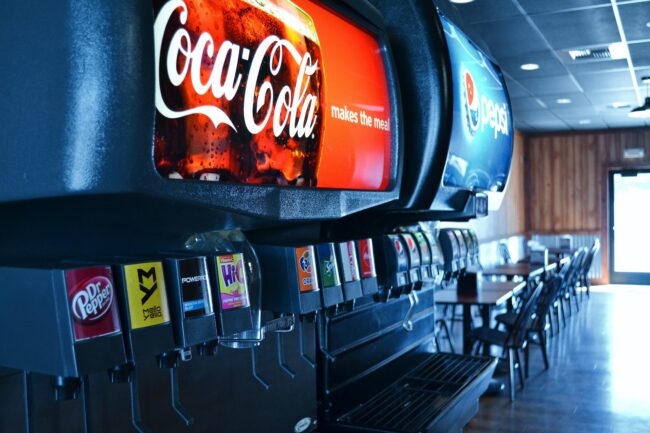Curious about how quickly your body flushes out that soda you just guzzled down? You’re not alone. In this article, we’ll delve deep into the science of soda and urination. From caffeine’s influence to water absorption rates, we’ll provide the well-researched answers you’re seeking.
Table Of Contents
−- The Science of Soda and Urination: What to Expect Time-wise
- Caffeine’s Impact on Urination Patterns
- The Process of Water Absorption and Urination
- The Physiological Changes Soda Triggers
- Does Soda Actually Hydrate You?
- Health Implications of “Squeezing Out the Last Drop”
- Best Practices for Healthy Urination
- The Long-Term Consequences of Excessive Soda Intake
The Science of Soda and Urination: What to Expect Time-wise
Contrary to popular belief, you won’t urinate soda out in mere seconds. While the caffeine in soda does act as a diuretic, stimulating your kidneys to work faster, it generally takes around 60 minutes to fully expel the liquid. The diuretic effect of caffeine makes you urinate more frequently than you would after drinking an equivalent amount of water.

However, if you notice that your urine seems abnormal or you’re experiencing pain, it may be a good idea to consult a healthcare provider. A urine test can rule out issues like bladder infections, which could be a cause for concern.
Caffeine’s Impact on Urination Patterns
Let’s talk caffeine—the main culprit behind soda’s diuretic effect. Caffeine levels in your blood peak around 15-45 minutes after ingestion and can linger for up to 5 hours. Consuming drinks rich in caffeine, like coffee, tea, or soda, can increase your urine output and may lead to dehydration if consumed in excessive amounts.
What this means is, that if you’ve had a soda or an energy drink, it might take several hours for your body to completely rid itself of the liquid. It’s also worth mentioning that forcing out the last drops of urine could lead to adverse health effects, making it crucial to maintain balanced urination habits.
The Process of Water Absorption and Urination
In a healthy individual, water absorption can take anywhere from 15 minutes to 2 hours, including the water content found in soda. The absorbed water serves many vital functions, such as temperature regulation and toxin removal, before being filtered by your kidneys and eliminated as urine.
For adults, the average daily water loss through urination is about 2.5 to 3 liters. Given this, it’s vital to stay hydrated by regularly consuming fluids throughout the day.
The Physiological Changes Soda Triggers
As soon as you sip that soda, its sugar and caffeine content go to work. Within 20 minutes, you’ll experience a surge in blood sugar and insulin levels. This rapid change can make you feel lethargic and fatigued shortly after consumption. Moreover, the diuretic properties of caffeine can expedite fluid loss, increasing the risk of dehydration.
In addition, certain sodas contain phosphoric acid, which has been linked to alterations in urinary chemistry that may contribute to kidney stone formation. Clearly, it’s not just about quenching your thirst; soda has a significant impact on your body’s internal environment.
Does Soda Actually Hydrate You?
Technically, soda does hydrate you, but it’s far from the best option. Excessive soda consumption, especially those high in caffeine and sugar, can lead to mild dehydration. So, even though soda contains water, relying on it for hydration is not advisable.
Health Implications of “Squeezing Out the Last Drop”
Forcing out the last bits of urine is more than just uncomfortable—it can negatively affect your health. This practice can strain your bladder and urethra muscles, leading to urinary issues like incontinence. Over time, holding in urine can result in decreased kidney function, paving the way for serious health conditions like urinary tract infections or kidney stones.
Best Practices for Healthy Urination
To sustain a healthy urinary system, aim to relieve yourself every 3 to 4 hours. When you feel the urge, try to hold it for another five minutes to train your bladder. Keep your daily fluid intake balanced and try to limit caffeine-rich beverages to maintain optimal bladder health.
The Long-Term Consequences of Excessive Soda Intake
Chronic soda consumption has far-reaching health implications. From elevated levels of blood sugar and liver fats to increased risks for conditions like diabetes and kidney stones, the impacts are both severe and enduring. Coupled with stimulants like caffeine and sugar, regular soda drinking could also interfere with your sleep patterns and judgment.
For a healthy life, moderation in soda consumption is key. And when it comes to hydration, nothing beats good old water.
So, the next time you reach for that soda consider the journey it takes through your body—ultimately ending up in your urine, but not without some lasting impacts along the way.

Editorial Staff
Our writers, editors, content managers, and SEO specialist. We all take part in crafting amazing articles. We spend hours ensuring that each article is based on facts, researched, and thorough. You'll never want to click the back button to look for more answers other than here!
